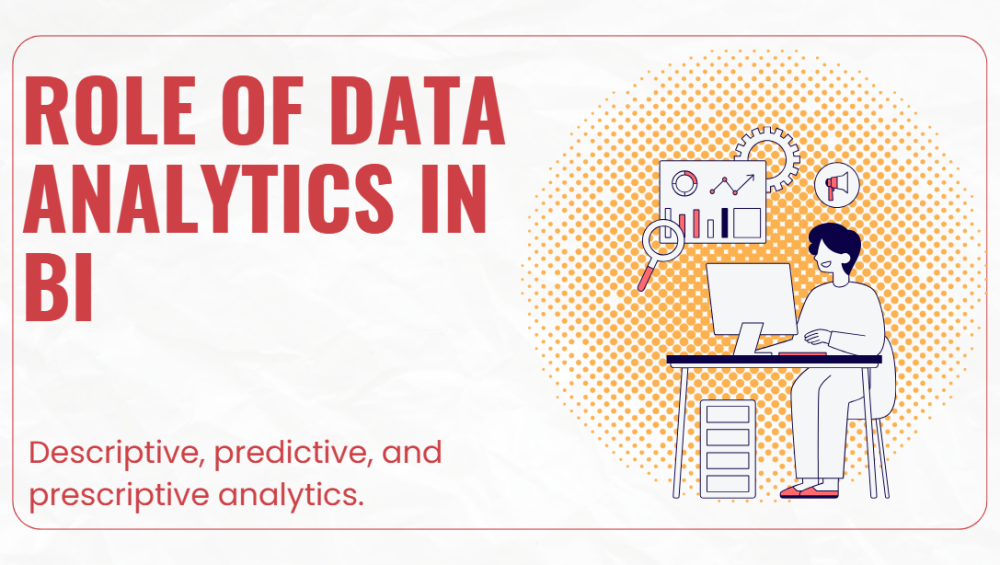Data analytics is the backbone of Business Intelligence (BI), turning raw data into actionable insights. This blog post explores the three main types of data analytics—descriptive, predictive, and prescriptive—and their roles in driving business success, as discussed in a recent lecture video.
The Three Types of Data Analytics
Descriptive Analytics: Understanding the Past
Descriptive analytics helps businesses understand what happened in the past. It’s like a report card for business performance, summarizing historical data to identify trends and patterns. This foundational step provides context for further analysis.
Predictive Analytics: Forecasting the Future
Predictive analytics takes historical data to forecast future trends. By leveraging statistical models and machine learning, it predicts outcomes like potential sales spikes or market shifts, empowering businesses to plan proactively.
Prescriptive Analytics: Recommending Actions
Prescriptive analytics goes beyond prediction to recommend specific actions based on data insights. It acts as a personal advisor, guiding businesses on the best course of action to achieve their goals, from optimizing operations to enhancing customer experiences.
Why Data Analytics Matters
Together, these analytics types enable businesses to move from merely surviving to thriving in a data-driven world. Descriptive analytics provides clarity on past performance, predictive analytics prepares you for what’s next, and prescriptive analytics ensures you act strategically. By mastering these, businesses can make informed decisions and stay competitive.
Watch the Video
Conclusion
Data analytics is a powerful toolset for any BI strategy. Understanding descriptive, predictive, and prescriptive analytics equips businesses to leverage data effectively. Watch the video above for a concise breakdown, and start harnessing analytics to transform your business today.
Explore Textify’s AI membership
Need Data? Explore AI Search Engine for Data Lovers
Explore insights with Textify Analytics
